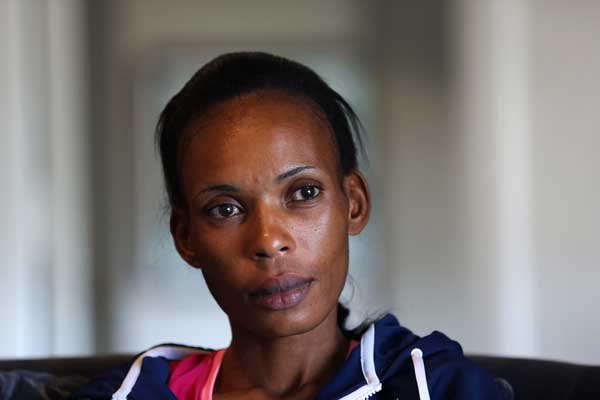The running community was shocked on Halloween when it was reported that 2013 and 2014 Chicago Marathon winner Rita Jeptoo had failed a drug test.
Jeptoo’s out-of-competition test took place in Kenya on September 25, two weeks before the Chicago Marathon, and officials have said the test was positive for EPO, a banned blood booster. Jeptoo has since requested a second round of tests—the B-sample—and her Chicago victory if not her career hang in the balance.
“This is an unfortunate event, but it illustrates that the testing process that is in place works,” said race director Carey Pinkowski.
First word of the test results, however, did not come from the mainstream media or a major running publication. Instead, it came at 12:15 a.m. Central Time from a family-operated blog based in San Jose, Calif.
Larry Eder, recently of tiny Ft. Atkinson, Wisc. and publishing director for a group of running magazines and websites, broke the news of Jeptoo’s test early Friday morning on RunBlogRun while covering the New York Marathon.
Nervous about the potential for libel, Eder met with his lawyer first thing in the morning. Eder knew how much it would cost him if his post were to prove false, but with four sources independently telling him Jeptoo had tested positive, he felt confident enough to proceed.
Within hours, questions were pouring in. Who were his sources? What was his agenda? “As a journalist, I knew it was on,” says Eder. Chicago had questions of its own for Eder, and this week, the blogger answered them.
When you broke the story, only Jeptoo’s A-sample, the preliminary sample in doping tests, had been tested. Why didn’t you wait to break the story until Jeptoo’s B-sample had been tested?
I’ve never written about an A-sample test before in my entire career. I have a very staunch view of it. However, I had four confirmations for the story who didn’t know I was talking to the others. I’ve been working with my lawyer and all that fun stuff, learning about libel law in France and Italy. We simultaneously published in 12 countries, providing our content free to some of the biggest sports papers in the world, because we thought it was that important a story.
Why was it so important?
To my estimation Rita Jeptoo was, one, not going to accept the test. Two, the biggest reason why I felt it needed to go out was that World Marathon Majors, a group that I terribly respect, was going to give out another check to a drug cheat. It just would not be right for their money to go to someone who I am very confident from my sources is doping. And I literally put my business on the line. I put any financial future I have on the line. I’ve walked away from a dozen similar stories over the years.
How surprised were you when Jeptoo requested that her second test be processed?
I was 50/50. I’d written two think pieces after the first, and in the third I wrote that I was hoping she would not.
The challenge for all journalists is how do we communicate that eureka moment? It took me two more columns to figure out that someone who uses dope is cheating the running community. If I buy a pair of $150 running shoes from Nike, part of that money goes to sports marketing, goes to advertising. She’s getting paid for sports marketing, so she’s not only stealing from me. She’s stealing from Nike, she’s stealing money from the entire running community.
Should Jeptoo’s second round of tests show a positive, how do you think it will affect the credibility of Kenyan runners, who are already being scrutinized after several have failed drug tests in the last few years?
That’s the problem. I think most of them are clean. James Templeton, who is the manager for David Rudisha, Augustine Choge, and Bernard Lagat, sent me a note and said: “Larry, look, testing in Kenya has gone on for 10 years. That’s not the issue.” And he talked about Augustine, who is a fine marathoner. He was tested seven to 10 times last year, but then other athletes and other groups have not been tested at all.
The Chicago Marathon is a very different race for an elite runner than it is for us 5-hour finishers. How does doping affect non-competitive marathoners?
It affects the citizen runners because it puts an odor on the whole sport. If I do my job well, then runners who are further back in the pack appreciate that Eliud Kipchoge had some of the same issues that they did. He ran the 5K when he was 18 years old, and yes he won the World Championships, but it took him a while to become a marathoner. It took two years, and he didn’t like it at first.
Could World Marathon Majors do more to discourage doping?
I think you’ll see that over the next few months, Marathon Majors will come out with an announcement about how they’re going to approach testing. They’re the leaders of this stuff, they put the money in the barrel. If we hadn’t had that money, IAAF [International Association of Athletics Federations], who was over there testing some other athletes, wouldn’t have tested Rita. I’m more than grateful to them.




